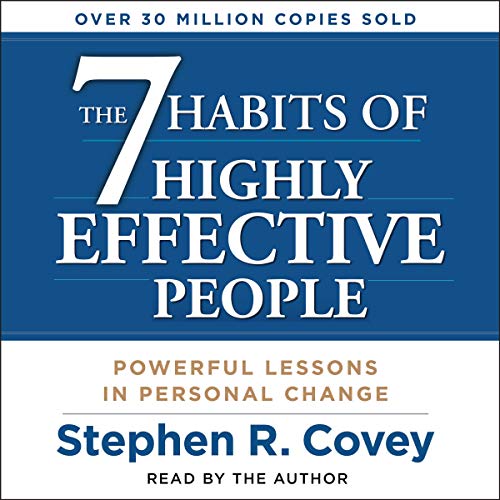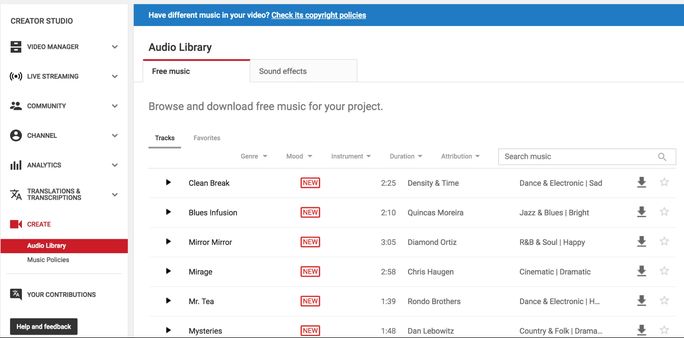Can Best Selling Audiobooks Replace The Experience Of Reading A Book?
Can best-selling audiobooks truly replace the immersive experience of reading a book? It’s a question that many bookworms and avid readers have pondered. In this digital age, where convenience is king, audiobooks have gained immense popularity. With just a few taps on your phone, you can have your favorite stories narrated to you by talented voice actors. But can they truly capture the magic and essence of reading a physical book? Let’s dive into this debate and explore the pros and cons of both mediums.
In the world of audiobooks, your imagination takes a backseat as the narrator guides you through the story. The tone of their voice, the accents they use, and the emotions they convey can enhance the storytelling experience in unique ways. With the right narrator, the characters come to life, and the narrative unfolds like a vivid movie in your mind. However, some argue that this reliance on narration can limit your own interpretation of the story. When reading a book, you have the freedom to imagine the characters and settings exactly as you envision them, creating a deeply personal connection to the story. Audiobooks, despite their convenience, may inadvertently rob you of this individualistic experience. So, can best-selling audiobooks replace the experience of reading a book? Let’s delve deeper and find out.
Can Best Selling Audiobooks Replace the Experience of Reading a Book?
While best selling audiobooks offer a convenient alternative to reading a book, they cannot fully replace the experience of physically turning the pages. Reading a book allows for a deeper connection with the story, as it engages multiple senses and allows for personal interpretation. Audiobooks, on the other hand, provide a different type of immersion through the narrator’s voice and interpretation. Ultimately, both formats have their merits, and it depends on personal preference and the situation at hand.

Can Best Selling Audiobooks Replace the Experience of Reading a Book?
In today’s fast-paced world, audiobooks have gained significant popularity as a convenient way to consume literature. With the rise of digital platforms and the increasing accessibility of audiobooks, many people are wondering if they can truly replace the traditional experience of reading a book. While audiobooks offer certain advantages, such as convenience and multitasking capabilities, they cannot fully replicate the immersive experience of reading a physical book. In this article, we will explore the benefits and limitations of audiobooks compared to the traditional reading experience.
The Advantages of Audiobooks
Audiobooks provide a unique and convenient way to enjoy literature. One of the key advantages is the ability to multitask while listening. Whether you’re commuting, exercising, or doing household chores, audiobooks allow you to engage with a story without having to physically hold a book. This flexibility is particularly appealing in our busy lives, as it enables us to make the most of our time.
Moreover, audiobooks are a great option for individuals with visual impairments or learning disabilities. By providing an auditory experience, they make literature more accessible to a wider range of readers. Additionally, audiobooks often feature professional narrators who bring the story to life with their expressive performances. This can enhance the overall enjoyment and emotional impact of the book.
Benefits of Reading a Physical Book
While audiobooks have their advantages, they cannot fully replace the experience of reading a physical book. There are certain benefits unique to the traditional reading experience that cannot be replicated by listening to an audiobook. Firstly, reading a book allows for a deeper level of engagement and concentration. When we read, we focus on the words on the page and immerse ourselves in the story. This focused attention can enhance our comprehension and retention of the material.
Furthermore, reading a physical book provides a tactile experience that audiobooks lack. The act of turning the pages, feeling the weight of the book in our hands, and visually experiencing the text contributes to a multisensory experience that enhances our connection to the story. Additionally, studies have shown that reading from a physical book can improve sleep quality, as the absence of blue light from screens promotes relaxation.
Comparing the Two Experiences
When comparing audiobooks to reading physical books, it is important to consider personal preferences and the specific context in which each medium is enjoyed. Audiobooks offer convenience and accessibility, making them an excellent choice for those who are constantly on the go or prefer auditory learning. They provide a way to engage with literature while engaging in other activities.
On the other hand, reading a physical book allows for a more focused and immersive experience. It offers a deeper level of engagement and connection with the material, as well as the tactile and visual elements that contribute to the overall reading experience. For many readers, the act of holding a book and turning the pages is an integral part of the enjoyment and satisfaction of reading.
Conclusion
While audiobooks have their advantages and can be a valuable addition to our reading habits, they cannot fully replace the experience of reading a physical book. Each medium offers a unique set of benefits and limitations, and the choice between them ultimately depends on personal preferences and the specific context in which we engage with literature. Whether it’s through the convenience of audiobooks or the immersive experience of reading a physical book, what matters most is the joy and enrichment we derive from engaging with stories and ideas.
Key Takeaways: Can Best Selling Audiobooks Replace the Experience of Reading a Book?
1. Audiobooks offer a convenient way to enjoy stories without physically reading.
2. Listening to audiobooks can enhance comprehension and improve listening skills.
3. Audiobooks can bring stories to life through talented narrators and sound effects.
4. Reading a physical book allows for a more immersive and tactile experience.
5. Both audiobooks and physical books have their unique advantages and can coexist for different reading preferences.
Frequently Asked Questions
1. Do audiobooks provide the same experience as reading a book?
While audiobooks offer a unique and immersive way to consume stories, they may not provide the exact same experience as reading a book. Reading engages your imagination as you visualize the characters, settings, and events in your mind. It allows you to set your own pace and create a personal connection with the story.
On the other hand, audiobooks offer the advantage of a professional narrator who brings the story to life through their performance. They can add emotion and depth to the characters, making the listening experience enjoyable. However, some readers may find that they prefer the act of reading and the ability to control the pace and interpretation of the story.
2. Can audiobooks replace the tactile experience of holding a physical book?
Audiobooks provide a convenient way to enjoy literature, but they cannot replicate the tactile experience of holding a physical book. The feel of the pages, the ability to flip through them, and the satisfaction of physically turning the page are all part of the reading experience that audiobooks cannot replicate.
However, the convenience of audiobooks should not be underestimated. They allow you to listen to books while engaged in other activities, such as driving or exercising. They also eliminate the need for physical storage space, making it easier to carry a library of books with you wherever you go.
3. Are audiobooks suitable for all types of books?
Audiobooks are suitable for a wide range of books, including fiction, non-fiction, self-help, and even textbooks. However, certain types of books may be better suited for the audiobook format than others. For example, books with complex charts, diagrams, or illustrations may not translate well into audio.
Fiction books, especially those with strong narration or dialogue, tend to work particularly well in the audiobook format. The performance of a skilled narrator can bring the characters to life and enhance the storytelling. Non-fiction books, such as biographies or memoirs, can also be enjoyable in audiobook form, as the author’s voice adds a personal touch.
4. Can audiobooks enhance the reading experience?
Audiobooks have the potential to enhance the reading experience for many people. They offer a different way to engage with the story, allowing listeners to fully immerse themselves in the narrative. The right narrator can bring unique voices and accents to the characters, making them feel more real.
Audiobooks also provide an opportunity to multitask. You can listen to a book while doing household chores, exercising, or commuting, making it easier to fit reading into a busy schedule. Additionally, for individuals with visual impairments or reading difficulties, audiobooks can be a valuable tool for accessing literature.
5. Is it possible to enjoy both audiobooks and physical books?
Absolutely! Many readers find joy in both audiobooks and physical books. They offer different experiences and can be enjoyed in different contexts. Some readers may prefer to read physical books when they have the time to fully immerse themselves in the story, while turning to audiobooks for more convenient and on-the-go reading.
By combining both formats, you can enjoy a wider range of books and maximize your reading time. Audiobooks can be a great companion during long commutes or while doing chores, while physical books can provide a more intimate and tactile reading experience. Ultimately, it’s about finding what works best for you and embracing the diverse ways to enjoy literature.
Do Audiobooks Count As “Real Reading”?
Final Thoughts: Can Best Selling Audiobooks Replace the Experience of Reading a Book?
When it comes to the age-old debate of whether best selling audiobooks can replace the experience of reading a physical book, there is no definitive answer. Both formats have their own unique advantages and drawbacks. Audiobooks offer convenience and the ability to multitask, while physical books provide a tangible and immersive reading experience. It ultimately boils down to personal preference and the specific situation at hand.
While audiobooks have gained immense popularity in recent years, with their accessibility and ease of use, they cannot fully replicate the experience of reading a book. There is something magical about holding a physical book in your hands, feeling the texture of the pages, and flipping through them at your own pace. The act of reading engages not just our sense of hearing, but also our sense of touch and sight, creating a more holistic and immersive experience. It allows us to fully immerse ourselves in the story and connect with the characters and settings in a way that audiobooks may struggle to provide.
That being said, audiobooks have their own unique advantages. They allow us to enjoy literature on the go, whether we’re commuting, doing household chores, or simply relaxing. They also bring stories to life through talented narrators who can infuse emotions, accents, and different voices into the characters, enhancing the overall experience. Audiobooks can be a wonderful alternative for those with visual impairments or learning disabilities, providing access to literature that may otherwise be challenging to engage with.
In conclusion, while best selling audiobooks may not fully replace the experience of reading a physical book, they offer convenience and accessibility that can enhance our overall reading experience. It’s not a matter of one format being superior to the other, but rather finding a balance and embracing the unique benefits that both audiobooks and physical books have to offer. So, whether you prefer to dive into a gripping story with the turn of a page or let the words wash over you through the voice of a narrator, both options can coexist harmoniously in the world of literature.






